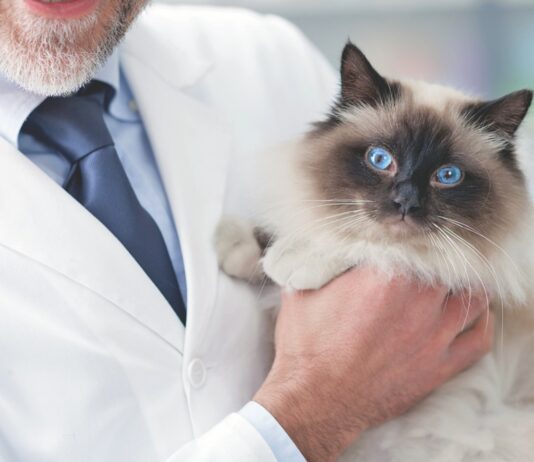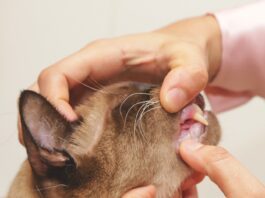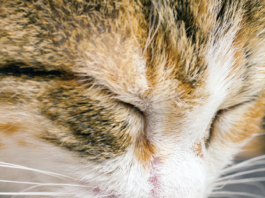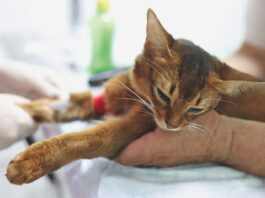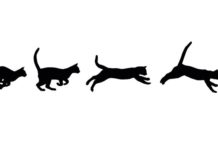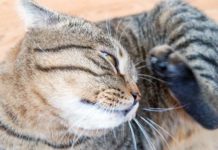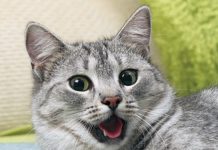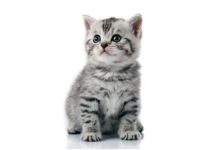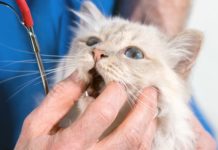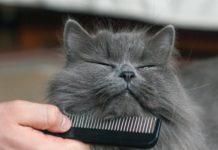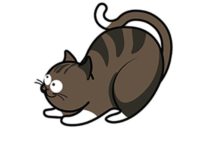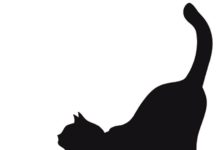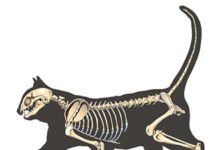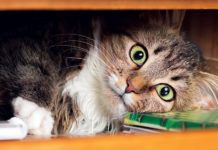Bloodwork for Kidney Disease
Kidney disease can be a serious problem, especially older cats, but it can be difficult to catch. Your cat must lose up to 75 percent of her kidney function before changes become evident on standard screening bloodwork. A routine urinalysis, however, may give your veterinarian a heads up that a blood renal panel should be run to specifically evaluate kidney function
Ear Scratching and Headshaking
When it comes to ears, theres a Big Four of common problems, says William H. Miller Jr. VMD DACVD, Professor of Medicine, Section of Dermatology, Medical Director, Cornell University Hospital for Animals:
When Heart Failure Occurs
Any cat can experience heart failure, something owners may be unaware of until its an emergency. The symptoms can remain hidden because cats are stoic and can often appear normal, even when they are very ill.
Vitamins and Minerals for Kitten Diarrhea
The Journal of Feline Medicine and Surgery published a study (Strong, SJ, et al 2019), shared on journals.sagepub.com, that looked at treatment options for orphaned kittens with diarrhea.
Happening Now…
His Home Became a Cat House - The GoodNewsNetwork.org reports that a man in Santa Barbara, Calif., turned his home into the House of Nekko (translation from Japanese: House of Cats).
Deciphering Drool
When you think drool, you think dogs, but cats drool, too. The difference is, feline drool is rarely normal. If your cat is drooling, she may be either overproducing saliva or having trouble swallowing it, and it is important to find out the cause.
Drowning in Dandruff
Visable dandruff is rarely normal. It may indicate a problem in our care or an underlying health problem.
Fungus in Brazil
The American Veterinary Medical Association (AVMA) reports that the Centers for Disease Control (CDC) is monitoring a fungal infection (Sporothrix brasiliensis) in Brazil and nearby countries that is being spread by cats to people. The infections in cats are known as clown nose because of the swollen, infected nasal mucosa seen in affected cats. Its usually fatal in cats.
Tiny Antiviral Molecule Offers Hope
Feline infectious peritonitis (FIP) is a devastating disease of cats for which there are currently no effective therapies available. Occurring in two forms-a wet form in which fluid accumulates in body cavities and a dry form in which affected cats develop neurological signs-the current prognosis for cats with FIP is grave. FIP develops in approximately 5 percent of cats infected with the ubiquitous (and usually well-tolerated) feline enteric coronavirus.
Choosing a Board-Certified Veterinarian
If your cat has been diagnosed with a complex or serious illness or needs specialty surgery, your regular veterinarian may recommend a referral to a board-certified specialist, a veterinarian who has put in extra training in a certain field, much like a human oncologist or cardiologist.
Cats Are Larger
Modern domestic cats are at least 16 percent bigger than their Viking-Age ancestors (793-1066 AD), according to a Danish study shared by The Winn Foundation. Researchers excavated the remains of adult domestic cats at archaeological sites in Denmark as well as modern skeletal remains.
Your Guide to Pain in Cats
Cats hide injuries and pain by instinct, a behavior that is important for survival in the wild. This forces us to be detectives when our cats are ill.

